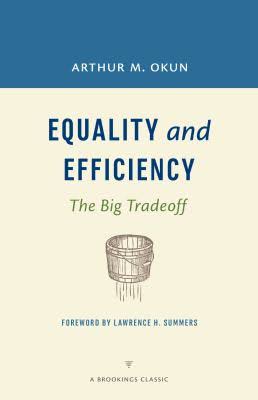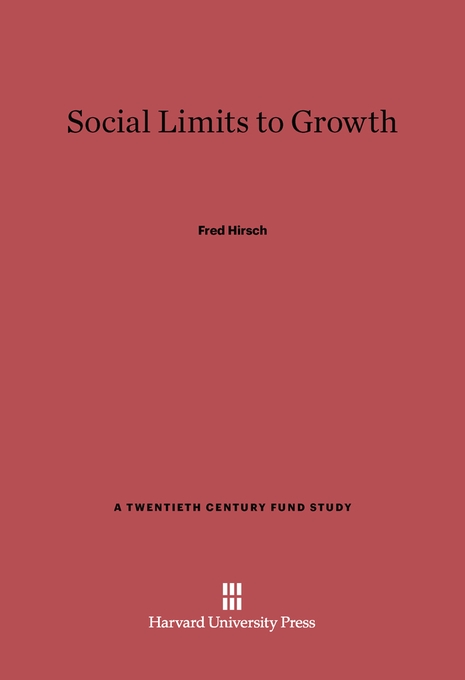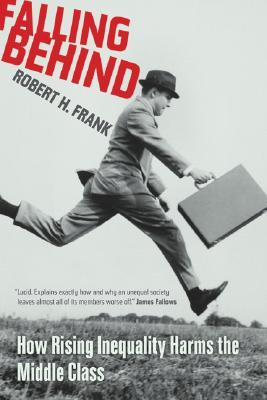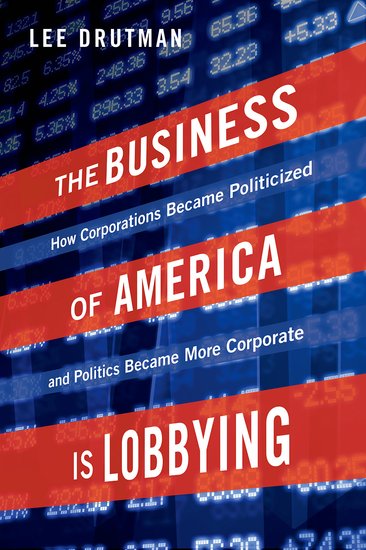There is rising concern about increasing economic inequality in many countries, both rich and poor. Absolute poverty by most standard measures is declining in most countries that are not war devastated. This is, in general, true even if one uses multidimensional measures of poverty that take into account non-income indicators (for the countries for which such data are available). Yet standard measures of relative inequality (like the Gini coefficient or Theil measure) show a significant rise in many of those countries over the last few decades. In other words, the conditions of the poor may be improving, but those for the rich are improving much more. If people are less poor than before, should we be concerned about rising inequality, and, if so, why?
“If people are less poor than before, should we be concerned about rising inequality, and, if so, why?”To some, inequality in society may simply be ethically distasteful. To utilitarians, controlling for the average income, increasing income inequality reduces social welfare simply because the same dollar has lower marginal utility for the rich than for the poor. But in this essay I am mainly concerned with the effects of inequality on efficiency and socioeconomic performance in general.
Evaluating the supposed “efficiency” of inequality
Most undergraduate economics textbooks to this day talk about an equality-efficiency trade-off. This is mainly about the disincentive effects of attempts to redistribute income from the rich to the poor. Progressive taxes to fund such redistribution may discourage work effort, investment, and risk-taking, and the consequent shrinking of the pie may leave the poor worse off compared to the case of a larger pie but with the same share as before. Okun compared such redistributive transfers with carrying water in “leaky buckets.”1 Brookings Institute, 1975.More info →
Brookings Institute, 1975.More info →
In general, it is argued, allowing inequality is a way of encouraging entrepreneurs and other fortune-seekers, whose enterprise, new ideas, and innovations enrich them but also improve the conditions of the whole economy. The wealthy are more willing and able to take risks, and hence redistribution may reduce productive risk-taking if it transfers wealth from less to more risk-averse agents (unless there is a public risk insurance policy to cover the latter). It is also the case that the rich save more than the poor, so inequality can generate more savings and investible funds.
But the last few decades of advance in economic theory and empirical findings have raised questions about the general applicability of the equality-efficiency trade-off. In what follows we shall enumerate and examine some of the relevant issues.
When there is information asymmetry between the two sides in a given transaction, the trade-off may not hold. Creditors do not have enough information about the viability of a project brought to them by a potential borrower. You may have a project that you know is very much worthwhile from both a private and social point of view, but the creditor may not be aware or convinced of it, and you do not have sufficient collateral to persuade the creditor. A rich man with an inferior project may get the loan, not you, because of the former’s larger assets, and hence collateral value. Thus inequality here promotes the less efficient outcome. Similarly, your low savings or collateral may not permit you to finance or borrow for investment in higher education for which you may otherwise have the talent and proficiency, whereas the less talented children of your rich neighbor go through college and university, while you drop out. This is a loss to society as well as yourself.
“Historically, the case where inequality and inefficiency have stubbornly persisted together relates to land.”
Historically, the case where inequality and inefficiency have stubbornly persisted together relates to land, which is usually very unequally distributed. In traditional (and in some nontraditional) agriculture the empirical evidence suggests that economies of scale in farm production are insignificant (except for some plantation crops) and that the small farm is often the most efficient unit of production. Yet the violent and tortuous history of land reform in many countries suggests that numerous roadblocks on the way to a more efficient reallocation of land rights are put up by powerful landed interests for many generations. Why don’t the large landlords instead voluntarily lease out or sell their land to small farmers and grab in the bargaining process much of the surplus arising from this efficient reallocation?
There clearly has been some leasing out of land, but problems of monitoring the tenant’s work and application of inputs, insecurity of tenure (discouraging long-term land improvements by the tenant), and the landlord’s fear that the tenant will acquire occupancy rights on the land have limited efficiency gains and the extent of tenancy. The land sales market is often rather thin (and in many developing countries the sales sometimes go the opposite way—from distressed small farmers to landlords and money-lenders). With low household savings and collaterals, the potentially more efficient small farmer is often incapable of affording the going market price of land. Landlords on the other hand often resist land reforms particularly because the leveling effects reduce their social and political power and their ability to control and dominate even non-land transactions in the village. Large land holdings may give their owner special social status or political power in a disproportionate way—so that the status or political effect from owning one thousand acres is larger than the combined status or political effect accruing to fifty new buyers owning twenty acres each. Thus the social or political rent of land ownership for the large landowner may not be compensated by the offer price of numerous small buyers. Under the circumstances the former will not sell and inefficient (from the productivity point of view) land concentration persists.
In times of depressed aggregate demand and idle capacity, inequality may hurt macroeconomic performance by making it difficult to stimulate enough mass consumer spending. Recent research suggests 2See for example Auclert and Rognlie’s “Inequality and Aggregate Demand” (2016).
More info → that a long-term rise in inequality can push the economy into a deep recession. There is also some literature which shows that inequality encourages excessive risk-taking in the financial sector, and along with household indebtedness may have been responsible for the financial crisis that originated in the United States in 2007–8.3See, for example, Rajan’s Fault Lines: How Hidden Fractures Still Threaten the World Economy (Princeton University Press, 2010), and for a more formal analysis, see Kumhof et al., “Inequality, Leverage, and Crises” (2015).
Under inequality not merely the aggregate consumer demand may be deficient, but the pattern of consumer spending may also get distorted. Certain types of consumer spending on status goods or what Hirsch 4 Harvard University Press, 1976.More info → called “positional goods” (houses, cars, and other easily visible conspicuous consumption items) can, in the context of inequality and community norms for emulation and the resultant “expenditure cascade,” lead to a race to the bottom among neighbors and reference groups, as Frank 5
Harvard University Press, 1976.More info → called “positional goods” (houses, cars, and other easily visible conspicuous consumption items) can, in the context of inequality and community norms for emulation and the resultant “expenditure cascade,” lead to a race to the bottom among neighbors and reference groups, as Frank 5 Berkeley: University of California Press, 2007.More info → has abundantly illustrated: clearly an inefficient outcome.
Berkeley: University of California Press, 2007.More info → has abundantly illustrated: clearly an inefficient outcome.
The link between inequality and crime has often been pointed out both in scholarly and popular outlets. Research has demonstrated the association between inequality of visible or conspicuous expenditure and violent crime6See Hicks and Hicks’s “Jealous of the Joneses: Conspicuous Consumption, Inequality, and Crime” (2014) while time-series evidence from several countries clearly shows a positive relation between income inequality and property crimes and violent crimes like robbery, homicide, and murder.7See Rufrancos et al. “Income Inequality and Crime: A Review and Explanation of the Time–series Evidence” (2013).
Similarly, the link between inequality and social and political conflicts (and hence economic disorder and instability) is also often suggested. Here the evidence is more mixed.8As shown in the literature review by Ray and Esteban (2016) There are several reasons for this. First, one has to be clear about the nature of conflict, which can range from industrial strikes and agitations all the way to violent civil wars. Secondly, for most of these conflicts, grievance arising out of economic disparity is not sufficient to explain their occurrence: resources, organization, agency, initiative, and leadership pave the way for action that takes the form of conflict, and, more importantly, to sustain it. Thirdly, when group conflict arises out of inter-group disparity, the measure of disparity that may be more relevant than the usual inequality is what Esteban and Ray9“On the Measurement of Polarization,” Econometrica, 1994, 62 (4): 819–51. measure as polarization, which takes into account the depth of cleavage or distance between the groups, as well as their size. Fourth, conflict may originate in the tension that can grow more from the change in the relative income status of two even similar groups rather than the overall level of inequality.
Just as the evidence on the relation between inequality and conflict is mixed, that between inequality and the obverse of conflict, i.e., cooperation (in team production efforts, in resolving disputes, and in the management of the local commons) is also not straight-forward. For example, Bardhan and Dayton-Johnson10 “Inequality and the Governance of Water Resources in Mexico and South India,” in J.-M. Baland, P. Bardhan, and S. Bowles (eds.), Inequality, Cooperation, and Environmental Sustainability, Princeton University Press, 2007. review the empirical literature on the relations between inequality and cooperation in management of water resources for irrigation in developing countries. There are sometimes important initial set-up costs in an irrigation management regime, which the rich and powerful people in the village often provide or take the leadership in mobilizing and sustaining. On the other hand, quite a bit of evidence suggests that relative equality helps in the formation and maintenance of water user associations, in following water allocation rules and in the broad-based resolution of water disputes. Similar patterns are evident in the community management of forests, fisheries, and grazing lands.11For evidence from research in Africa, see Baland and Platteau’s “Wealth Inequality and Efficiency in the Commons: The Unregulated Case” (1997).
The empirical evidence is, however, often deficient in providing sufficiently refined data to discern among varied theoretical hypotheses about norms, bargaining power and perceptions of fairness under situations of inequality. Experimental evidence suggests that subjects whose fallback positions are very different are less likely to come to agreements than are more equally situated subjects.12See, for example, Lawler and Yoon’s “Commitment in Exchange Relations: Test of a Theory of Relational Cohesion” (1996). Under conditions of inequality, bargaining failures may occur because inequality heightens informational asymmetries among the bargaining partners, or because very unequal offers based on disparities in initial wealth or bargaining power are likely to be perceived as unfair and rejected, as in experimental play of the ultimatum game.13For a more theoretical discussion on the issue of initial wealth inequality and cooperation, see Bardhan, Bowles and Gintis’s “Wealth Inequality, Wealth Constraints, and Economic Performance” (2000), and the chapters by Baland and Platteau and by Bardhan, Ghatak, and Karaivanov in Baland, Bardhan, and Bowles’s Inequality, Cooperation, and Environmental Sustainability (Princeton University Press: 2007).
It has been widely observed and commented upon that economic inequality enables the rich and the corporate sector to pour resources into the political influence machine to get the system to work in their favor, particularly through lobbying (not just in improving access, but in the United States the lobbyists now actually develop and draft the legislation in some cases) and campaign finance. This often results in laws and regulations in favor of wealth concentration and perpetuation of plutocratic power and away from efficient outcomes.14For a recent incisive general account of how the business lobbies work in the United States and their adverse effects, see
 New York: Oxford University Press, 2015.More info → Corporate power in lobbying, bribing, election-funding, and media-shaping is mounting in many developing countries as well.
New York: Oxford University Press, 2015.More info → Corporate power in lobbying, bribing, election-funding, and media-shaping is mounting in many developing countries as well.
“Social inequalities also have adverse economic efficiency effects.”
Social inequalities also have adverse economic efficiency effects. In countries of acute gender inequality, women’s education, health, and work participation suffer, and this has negative consequences not merely for the women themselves, but also for the children that these women bring up. Thus society pays the price of gender inequality across generations. Similarly, if there are serious inequalities across neighborhoods and localities, a child born in a backward area will have inferior schools, roads, and other facilities and less exposure to good networks, peer groups, and role models in the neighborhood and other forms of social capital. This has obvious effects on future economic performance of the child.
A conceptual conundrum
Finally, a word on a conceptual issue. In all of the above we have not made any explicit distinction between inequality of opportunity and that of outcome. Some people would claim that normatively what matters is equality of opportunity; once that is ensured different people with different ambition or energy and initiative may still create inequality of outcome, which one should not mind much. But the distinction between these two types of inequality is not always clear-cut. Equality of opportunity but inequality of outcome in one generation quickly translate into inequality of opportunity for children in the next generation. Just because my parents while facing equality of opportunity were too lazy to fully utilize that opportunity, should I face disadvantage compared to children of more ambitious parents, or should the game be recast for each generation? If the latter, you may confiscate wealth bequests, but how do you eliminate differences in home and neighborhood effects from one generation to another?
In general when one thinks across generations, ideas of intergenerational mobility become important in considering inequality. We need to know more about how such mobility measures relate to the efficiency issues discussed in this essay.
References:
More info →
 New York: Oxford University Press, 2015.More info →
New York: Oxford University Press, 2015.More info →












